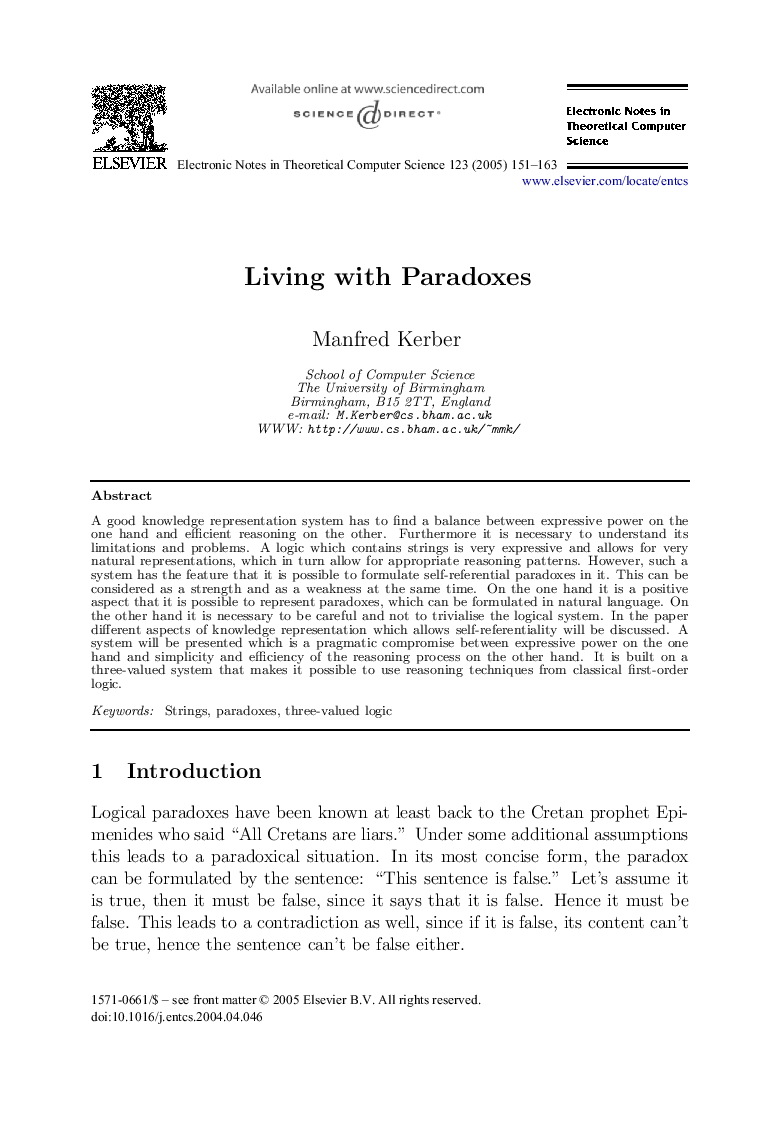| Article ID | Journal | Published Year | Pages | File Type |
|---|---|---|---|---|
| 9655955 | Electronic Notes in Theoretical Computer Science | 2005 | 13 Pages |
Abstract
A good knowledge representation system has to find a balance between expressive power on the one hand and efficient reasoning on the other. Furthermore it is necessary to understand its limitations and problems. A logic which contains strings is very expressive and allows for very natural representations, which in turn allow for appropriate reasoning patterns. However, such a system has the feature that it is possible to formulate self-referential paradoxes in it. This can be considered as a strength and as a weakness at the same time. On the one hand it is a positive aspect that it is possible to represent paradoxes, which can be formulated in natural language. On the other hand it is necessary to be careful and not to trivialise the logical system. In the paper different aspects of knowledge representation which allows self-referentiality will be discussed. A system will be presented which is a pragmatic compromise between expressive power on the one hand and simplicity and efficiency of the reasoning process on the other hand. It is built on a three-valued system that makes it possible to use reasoning techniques from classical first-order logic.
Keywords
Related Topics
Physical Sciences and Engineering
Computer Science
Computational Theory and Mathematics
Authors
Manfred Kerber,
